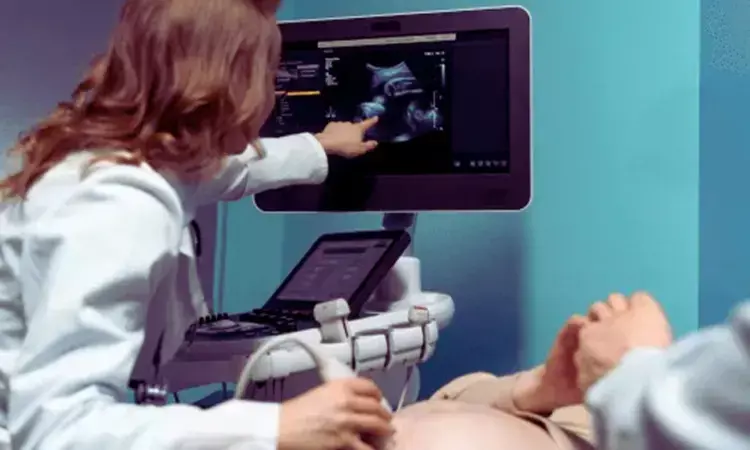- Home
- Medical news & Guidelines
- Anesthesiology
- Cardiology and CTVS
- Critical Care
- Dentistry
- Dermatology
- Diabetes and Endocrinology
- ENT
- Gastroenterology
- Medicine
- Nephrology
- Neurology
- Obstretics-Gynaecology
- Oncology
- Ophthalmology
- Orthopaedics
- Pediatrics-Neonatology
- Psychiatry
- Pulmonology
- Radiology
- Surgery
- Urology
- Laboratory Medicine
- Diet
- Nursing
- Paramedical
- Physiotherapy
- Health news
- Fact Check
- Bone Health Fact Check
- Brain Health Fact Check
- Cancer Related Fact Check
- Child Care Fact Check
- Dental and oral health fact check
- Diabetes and metabolic health fact check
- Diet and Nutrition Fact Check
- Eye and ENT Care Fact Check
- Fitness fact check
- Gut health fact check
- Heart health fact check
- Kidney health fact check
- Medical education fact check
- Men's health fact check
- Respiratory fact check
- Skin and hair care fact check
- Vaccine and Immunization fact check
- Women's health fact check
- AYUSH
- State News
- Andaman and Nicobar Islands
- Andhra Pradesh
- Arunachal Pradesh
- Assam
- Bihar
- Chandigarh
- Chattisgarh
- Dadra and Nagar Haveli
- Daman and Diu
- Delhi
- Goa
- Gujarat
- Haryana
- Himachal Pradesh
- Jammu & Kashmir
- Jharkhand
- Karnataka
- Kerala
- Ladakh
- Lakshadweep
- Madhya Pradesh
- Maharashtra
- Manipur
- Meghalaya
- Mizoram
- Nagaland
- Odisha
- Puducherry
- Punjab
- Rajasthan
- Sikkim
- Tamil Nadu
- Telangana
- Tripura
- Uttar Pradesh
- Uttrakhand
- West Bengal
- Medical Education
- Industry
Doppler Ultrasound-Based Approach Reduces Complications in Pregnancies With Reduced Fetal Movements: Lancet Study

Netherlands: A new international study has found that using a cerebroplacental ratio (CPR)-based management approach in pregnancies at term-where women report reduced fetal movements—can help lower the risk of adverse perinatal outcomes, even in fetuses that are not classified as small-for-gestational-age (non-SGA). The findings, published in The Lancet Obstetrics, Gynaecology & Women's Health, were led by Dr. Laura Lens and her team from the University Medical Centre Groningen, Netherlands.
The cerebroplacental ratio is a Doppler ultrasound measurement that compares blood flow in the fetal brain and the umbilical cord. A low CPR suggests that the fetus may be redirecting blood flow to the brain due to placental dysfunction, an indication that the baby might be under stress despite appearing normally grown.
The CEPRA trial (Cerebroplacental Ratio-based Management) is the first randomized study to evaluate whether using this ratio to guide clinical decisions could improve outcomes in pregnancies where mothers feel reduced fetal movement, but the fetus is not underweight.
The study enrolled 1,815 pregnant women across 23 hospitals—22 in the Netherlands and one in Australia—between July 2020 and September 2024. All participants were carrying singleton pregnancies in a cephalic presentation at term and had reported reduced fetal movement. Women were eligible only if their estimated fetal weight was above the 10th percentile and there was no immediate reason for inducing labor.
Hospitals were randomly assigned to two groups: one where CPR results were disclosed and used to guide clinical management (revealed group), and the other where care proceeded according to usual hospital protocols without disclosing CPR values (concealed group). In the revealed group, women with a CPR below 1.1 were advised expedited delivery, while those with higher ratios continued with routine monitoring.
The study revealed the following findings:
- A total of 1,684 women were in the modified intention-to-treat analysis.
- Adverse perinatal outcomes occurred in 12% of women who received CPR-based management.
- In the standard care group, adverse outcomes were in 15% of women; corresponding to a relative risk reduction of 24% in the CPR-guided group.
- There were no stillbirths in either group.
- One neonatal death occurred in each group.
- The adverse outcomes included neonatal mortality, low five-minute Apgar scores, low umbilical artery pH, emergency births due to fetal distress, and severe neonatal morbidity.
- Serious adverse events were slightly more common in the standard care group.
- None of the serious adverse events were related to the study protocol.
The research offers a new perspective on managing pregnancies where reduced fetal movements are reported but fetal growth appears normal. “These findings suggest that CPR can help distinguish between cases that require early intervention and those that do not,” said co-author Dr. Sanne Gordijn. “This ensures that both mother and baby receive the care best suited to their situation.”
The authors concluded, "The study reinforces the value of Doppler-based screening in identifying hidden risks in term pregnancies. It provides a foundation for updating clinical guidelines in managing reduced fetal movements in non-SGA fetuses."
Reference:
Lens, L. A., Posthuma, S., Damhuis, S. E., Burger, R. J., Groen, H., Duijnhoven, R. G., Kumar, S., Heazell, A. E. P., Khalil, A., Ganzevoort, W., & Gordijn, S. J. (2025). Cerebroplacental ratio-based management versus care as usual in non-small-for-gestational-age fetuses at term with maternal perceived reduced fetal movements (CEPRA): A multicentre, cluster-randomised controlled trial. The Lancet Obstetrics, Gynaecology, & Women's Health, 100002. https://doi.org/10.1016/j.lanogw.2025.100002
Dr Kamal Kant Kohli-MBBS, DTCD- a chest specialist with more than 30 years of practice and a flair for writing clinical articles, Dr Kamal Kant Kohli joined Medical Dialogues as a Chief Editor of Medical News. Besides writing articles, as an editor, he proofreads and verifies all the medical content published on Medical Dialogues including those coming from journals, studies,medical conferences,guidelines etc. Email: drkohli@medicaldialogues.in. Contact no. 011-43720751


